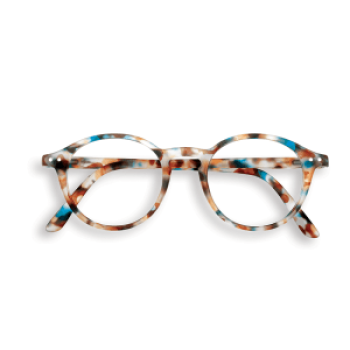Can You Claim the Cost of Reading Glasses on Your Tax and VAT Returns?
For reading glasses to be considered a tax-deductible expense, they must be necessary for the performance of your work. This means that if you require reading glasses primarily for computer work or reading documents related to your business, you may be able to claim the cost as a business expense
Self-employed professionals, freelancers, and small business owners often find themselves juggling various expenses. Among these, reading glasses for close work or computer activities might seem negligible, but they can add up over time. You may be wondering if these costs are tax-deductible or if VAT can be claimed back. Here, we explore the pros and cons of including reading glasses as business expenses on your tax and VAT returns.
Understanding the Tax-Deductibility of Reading Glasses
When Can You Claim?
For reading glasses to be considered a tax-deductible expense, they must be necessary for the performance of your work. If you require them specifically for tasks such as computer work or reading business-related documents, you may be able to claim the cost as a business expense. HMRC guidelines stipulate that an expense must be incurred wholly and exclusively for the trade to qualify for tax relief.
The Pros:
- Potential Tax Savings:
- If eligible, claiming the cost of reading glasses can reduce your taxable income, leading to potential savings.
- Essential for Work:
- If your glasses are primarily used for professional tasks, this bolsters your claim for them being essential business tools.
The Cons:
- Strict Criteria:
- Terms such as "wholly and exclusively" can make it challenging to qualify. Glasses used for personal reasons, even minimally, may not be eligible.
- Documentation Required:
- You'll need to maintain comprehensive records—receipts, proof of purchase, and documentation demonstrating how and when the glasses are used for work.
Claiming VAT on Reading Glasses
Claiming back VAT for reading glasses adds another layer of complexity, particularly given how HMRC treats different types of glasses:
The Pros:
- Zero-Rated Supply for Health:
- Generally, glasses are considered zero-rated for VAT purposes due to their health-related necessity, but this doesn’t always apply to business purposes.
The Cons:
- Specific Rules:
- Knowing whether you can claim VAT depends on detailed understanding of VAT regulations for health versus business tools.
- Professional Advice Recommended:
- Because the distinction between personal use and business use can be blurry, consulting with a tax expert is advisable for clarity.
Making Your Claim
If you're considering claiming the expense of reading glasses used for computer or close work, here are a few tips:
- Keep Accurate Records:
- Maintain detailed records of when and why the glasses are used. Document their necessity for your professional duties.
- Consult a Professional:
- A tax accountant can help you delineate which costs are genuinely business-related and offer guidance on tax and VAT claims.
- Understand HMRC Guidelines:
- Familiarize yourself with HMRC’s rules to ensure your claim adheres to their requirements.
Final Thoughts
While the potential to claim the cost of reading glasses as a business expense exists, it is fraught with stipulations and need for careful documentation. Sorting through these complexities can lead to financial benefits, but it is essential to approach with a thorough understanding of taxation laws or the aid of a professional. Remember, proactive management of these seemingly trivial costs can contribute positively to maintaining your business's financial health. If you're uncertain about your specific situation, seeking expert advice will always be the best route.







-350x350.png)
-350x350.png)